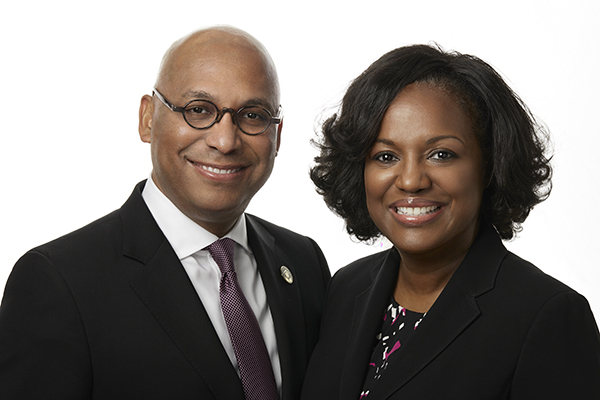Marriage and Family experts, Willie and Elaine Oliver tackle a challenging topic.

What’s the big deal with homosexuality? The older people in my church often refer to homosexuality as a sin. Why would it be a sin if God made a person that way? Isn’t God and the Bible all about love? So why should it make a difference who a person loves? Does God really expect someone to live without love for their entire life if they were born homosexual? This doesn’t seem fair. What do you think?
Your question is one often asked by sincere Christians trying to know God’s truth about the issue of homosexuality. Yet, in contemporary society, bombarded by divergent voices and seemingly individual truths, it isn’t difficult to confuse Christian ethics with utilitarian, secular, and/or humanist ethics. So we begin by asking you to consider the message the Bible offers in 1 Corinthians 2:14: “The natural person does not accept the things of the Spirit of God, for they are folly to him, and he is not able to understand them because they are spiritually discerned.”*
Genesis 2:24, 25 chronicles God’s original plan for sexual activity, and it’s clearly in the context of a heterosexual marriage between a man and a woman, when it says: “Therefore a man shall leave his father and his mother and hold fast to his wife, and they shall become one flesh. And the man and his wife were both naked and were not ashamed.”
When sin entered the earth through the choices made by our first parents—Adam and Eve—the entire planet became tainted by disobedience to God and its results—death—including the manifestation of aberrations in nature that have nothing to do with God’s Creation plan. So, in God’s attempt to save humankind, rather than having them experience the results of sin—death—the apostle Paul submits in 1 Thessalonians 4:3-5: “For this is the will of God, your sanctification: that you abstain from sexual immorality; that each one of you know how to control his own body in holiness and honor, not in the passion of lust like the Gentiles who do not know God.”
God further clarifies the boundaries of sexual relationships for those who choose to be His disciples in the message of 1 Corinthians 7:1, 2: “Now concerning the matters about which you wrote: ‘It is good for a man not to have sexual relations with a woman.’ But because of the temptation to sexual immorality, each man should have his own wife and each woman her own husband.” Here again, God underscores the boundaries of sexual activity within a heterosexual marriage, and as a venture that should exclude sexual immorality.
The Bible also shares a list of persons who will not have a place in God’s eternity—including those involved in immoral heterosexual activity—when it submits in 1 Corinthians 6:9: “Or do you not know that the unrighteous will not inherit the kingdom of God? Do not be deceived: neither the sexually immoral, nor idolaters, nor adulterers, nor men who practice homosexuality.”
The truth is, being a follower of Jesus is characterized by sacrifice and obedience to His principles regardless of one’s sexual orientation. After all, whether someone has a heterosexual or homosexual orientation, unless their sexuality is under the lordship of Jesus Christ—meaning that they’re obedient disciples—they’re in trouble. The Bible unambiguously states in Matthew 16:24: “If anyone would come after me, let him deny himself and take up his cross and follow me.” This is the challenge of every follower of Jesus, regardless of sexual orientation.
Our deepest desire to love and be loved was placed in us by God at Creation. He made us to desire His love more than anything else. The greatest love of all is God’s steadfast, unconditional love. Jesus Himself states in John 15:13: “Greater love has no one than this, that someone lay down his life for his friends.” This is exactly what Jesus did for us all, because He loves us better than any other love we’ll ever experience on earth. When filled with this abiding love we’re enabled to love others as purely as God loves us. This love should not be confused with sexual attraction and drive—which is often the way love is portrayed in our contemporary context.
While our human love relationships are often inconsistent and filled with frequent breakups and the reality of abandonment, we can depend on the incomparable love and presence of Jesus in our lives. In fact, He declares in Matthew 28:20: “And behold, I am with you always, to the end of the age.”
Regardless of the nature of our sin—even if it is homosexual practice—we can find acceptance, forgiveness, restoration, and salvation in Jesus when we respond in obedience. We see this evidenced when Jesus said to the woman caught in adultery: “Neither do I condemn you; go, and from now on sin no more” (John 8:11).
We hope that what we’ve shared will give you an opportunity to further reflect on God’s will for His followers. You are in our prayers.
*Scripture quotations are from The Holy Bible, English Standard Version, copyright © 2001 by Crossway Bibles, a division of Good News Publishers. Used by permission. All rights reserved.








